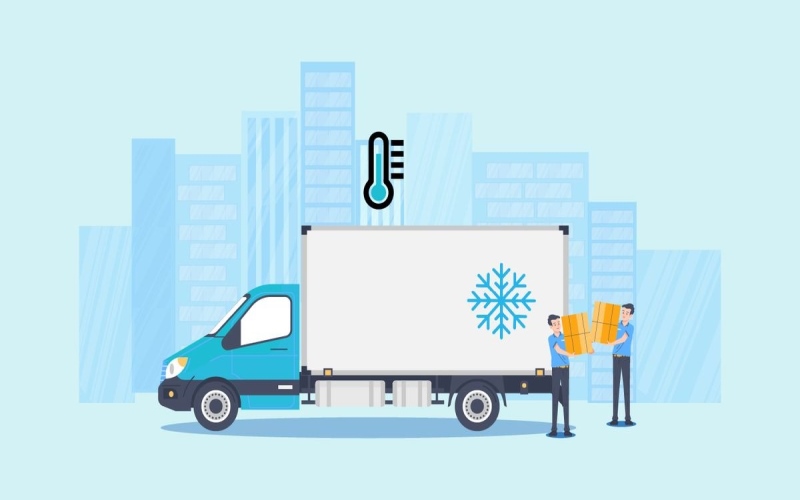In today’s world, Transportation Temperature Controlled plays an important role in ensuring the safety and quality of goods, especially in industries that require special attention to storage conditions, such as the food and pharmaceutical industries. Controlled transportation is a fundamental component of the logistics chain, guaranteeing the safety of goods on their way from producer to consumer.
Importance of temperature control
Temperature control during transportation is a key factor in maintaining the integrity and safety of shipments. Changes in temperature can adversely affect the quality of food products, the ability of pharmaceuticals to maintain their effectiveness and the safety of other sensitive goods. Controlled transportation is therefore an integral part of the shipping process, ensuring stable temperature conditions and ensuring that goods reach the consumer in the best possible condition.
Principles of temperature control during transportation
Temperature control is accomplished by using special means and technologies to maintain optimum storage conditions. These include the use of insulated containers and vehicles, special cooling, heating and temperature control systems. Mechanisms of controlled transportation allow to maintain constant temperature within the set parameters and timely respond to emerging deviations.
Efficiency of controlled transportation
Controlled transportation not only ensures the safety of goods, but also increases the efficiency of the logistics chain. It helps to reduce loss and damage to goods, reduces the risk of bacteria and other microorganisms, and allows precise control of product shelf life. As a result, consumers can be assured of the quality of goods, and manufacturers and suppliers can demonstrate a high level of responsibility and reliability of their operations.
Temperature control during transportation has a number of practical advantages. Firstly, it reduces the risk of spoilage and product loss. Stable temperature conditions ensure longer shelf life of goods, which means less need to move and replace them. It also reduces return and customer compensation costs associated with loss of product quality.
Second, controlled transportation facilitates regulatory compliance. In industries with strict regulations and standards, such as food and pharmaceuticals, maintaining proper temperature control is integral to complying with laws and regulations. This is important to preserve companies’ reputations and protect consumers.
Conclusion
Temperature-controlled transportation is an important element in the successful delivery of goods that require special attention to storage conditions. Temperature control ensures the safety of goods, maintains their quality and reduces losses in the logistics chain. Optimal storage conditions help to gain consumer confidence and testify to the reliability and professionalism of companies like Divine Transport.
Temperature-controlled transportation plays a pivotal role in preserving the integrity of perishable goods, ensuring they reach their destination in optimal condition. From pharmaceuticals to fresh produce, maintaining specific temperature ranges during transit is critical to safeguarding the quality and efficacy of these items. This specialized form of logistics is essential for industries where even slight deviations from the required temperature can lead to substantial losses. With advancements in technology, temperature-controlled transportation employs sophisticated monitoring systems to track conditions in real-time, providing a seamless and reliable supply chain. As global trade expands, the importance of these temperature-controlled solutions becomes increasingly evident in sustaining the quality and safety of sensitive goods.

